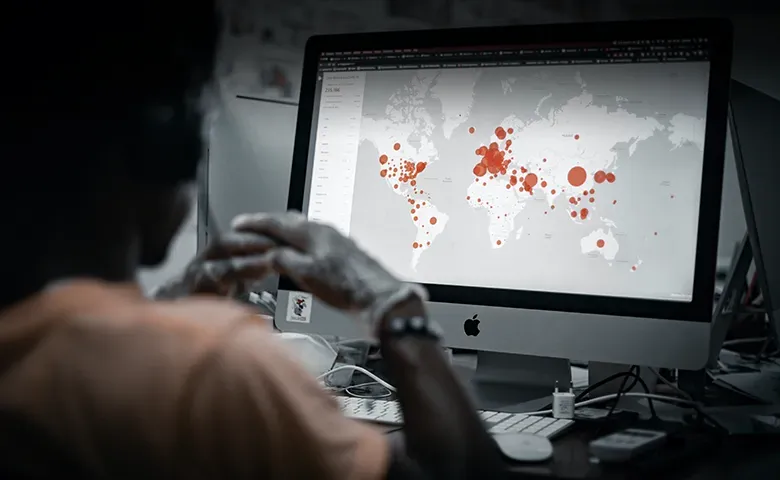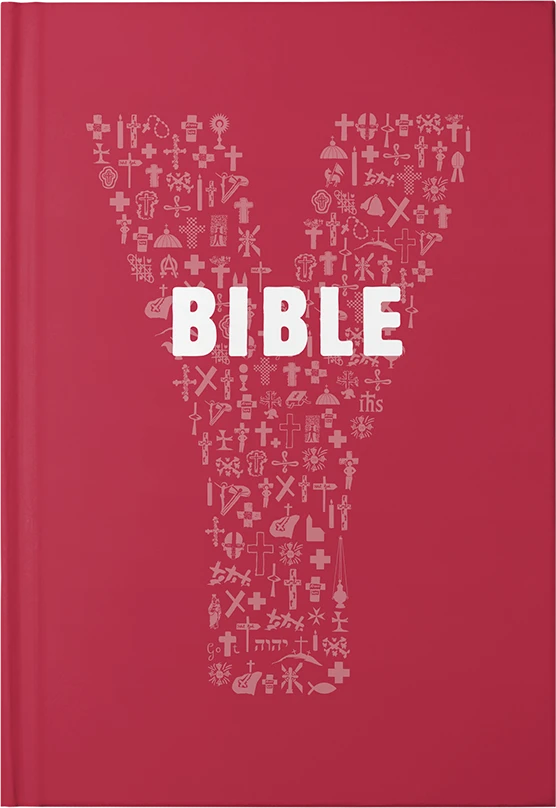

Credopedia
Why does God let the Corona virus happen?
God can do anything! He is all-powerful! Then why doesn’t he “snip”? – and this devastating little virus, which has killed thousands of people, sent whole nations into panic and paralysis, and is foreseeably ruining the world economy, disappears in the poison cabinet of medical history?
Definition
What is the Point/The Why Question
Almost everyone asks themselves what the point of life is. They ask themselves many “why” questions: “Why am I on this earth? Why does this or that happen? Why is this my lot in life?” You can leave these questions about meaning unanswered and keep on living without paying any mind to your spiritual horizons. You can hide away in a cocoon to privately make sense of your life. You can deny the existence of meaning and claim that life on Earth is simply absurd. But you could also start believing, which means: To live our lives trusting in God, even if we do not understand everything that happens to us.
What does the Bible say?
The first creation narrative in the Bible ends with this sentence: “God looked at everything he had made, and found it very good.” (Gen 1:31) In spite of sin and rebellion against the creator of all things, God never denies that His creation is “very good”, as it says in the beginning. God never (and therefore the fact that there is meaning to life). The first name by which God is described in the Old Testament is El Shaddai (Gen. 17:1 I am God the Almighty). “Shad” also denotes the breast of the mother and therefore signifies the motherly care of God. God is good, but at the same time, he cannot be scientifically assessed, so he also remains a mystery to us: “For my thoughts are not your thoughts, nor are your ways my ways—oracle of the LORD. For as the heavens are higher than the earth, so are my ways higher than your ways, my thoughts higher than your thoughts. For my thoughts are not your thoughts.” ( Is 55:8). People who “sit in darkness and death’s shadow” (Lk 1:79) keep asking themselves: “Why, then, do you gaze on the faithless in silence while the wicked devour those more just than themselves?” (Hab 1:13). It is not the only Job who holds fast to the conviction that God has good plans for us in spite of all challenges and strokes of fate. To keep hoping in God is expressed in one of his other names: Emmanuel (= God is with us). This name prophetically foreshadows the coming of the Messiah: “Therefore the Lord himself will give you a sign; the young woman, pregnant and about to bear a son, shall name him Emmanuel” (Is 7:14). In Jesus, God never leaves us! Through Jesus we know once and for all that God has good plans for us: “We know that all things work for good for those who love God, who are called according to his purpose.” (Rom 8:28) By trusting in God’s reliable love, Christians can live a life full of meaning even in the midst of fragile security.
A short YOUCAT-Catechesis
Why does God allow the Coronavirus?
God can do anything! He is all-powerful! Then why doesn’t he “snip”? – and this devastating little virus, which has killed thousands of people, sent whole nations into panic and paralysis, and is foreseeably ruining the world economy, disappears in the poison cabinet of medical history?
Yes, “For God, nothing is impossible.” He could if he wanted to. After all, God is the creator of the world and the one who keeps it in His being, also “the Lord of the history. He directs all things and can do everything” – how it is said YOUCAT 40. But the next sentence already says: “How he uses his omnipotence is a mystery.”
Again a secret! – some people might think in their quiet chamber: “Oh, that is such an excuse from theologians! God does not exist – you can see that! And if he does exist, he is either weak – he can do nothing – or he is disinterested. Then we don’t need him at all!”
God is neither inexistent, nor weak, nor evil…
God is different. He is beyond all imagination. No man can see his cards. “My thoughts are not your thoughts and your ways are not my ways” (Is 55:8), says the prophet, Isaiah. An old, pious priest once challenged all my faith when he said “Listen! God does not make mistakes! Do you believe that?” When I only brought out a “But …”, he looked at me strictly through rimless glasses and repeated the sentence: “God does not make mistakes! Do you believe that?” Yes. I believe it now, not least because St. Thomas Aquinas made me think: “God only allows evil to come into being in order to make something better.” (YOUCAT 51)
About the difference between fate, chance, punishment, admission, and sign
If Corona were only a fate, then the disaster would be a senseless curse upon us. The last human thing to say about it is, “Tough luck! Fate is fate”. On the next level of interpretation, we hear: “It is chance – a combination of unfavorable circumstances. What do you say then? “Next time we’ll be smarter, then we’ll cheat chance.” I know of no sick person whom such an answer would ever have filled with comfort and confidence.
Is Corona perhaps a punishment from God? Is it a punishment for destroying the earth? Difficult! In the Old Testament, God punishes the sins of His people. But one must not conclude from this that everywhere where misfortune befalls people, a punishing God is behind it. In any case, Jesus did not relate the disaster of Shiloh, in which 18 people died, to the sins of the victims: “Do you think that they were guiltier than all the other inhabitants of Jerusalem? (Lk 13:4). All need repentance.
And most of the time it is the case that we ourselves produce the rubbish from which we then suffer and for which we gladly look for a scapegoat. It is more helpful to speak of God’s permissions. For this is a sure knowledge of faith that there is nothing beside God – that is, nothing that He does not also permit, whether we understand it or not. In YOUCAT 49 it says: “God is in everything, which comes to us in the vicissitudes of our lives, even in the painful events and the seemingly senseless coincidences.”
I beg your pardon? A great moment?
There is a word far more appropriate to interpret the Corona crisis from God. That word is “sign”. Piety is the art of reading the handwriting of God, of deciphering His signs, in everything that happens. Could Corona – as terrible as things are – not also be a time-out decreed from above? An act of emergency rescue? A drastic stop sign preventing us from driving the planet with all its inhabitants into the abyss unchecked?
Recently, someone leaned out of the window in a letter to the editor: “Could it be a great moment for intelligent politicians who are now calling for radically new approaches for the future? … To continue building dirt-spinning cars? Cruise ships? A few thousand more tourist planes? Why not switch to organic farming in general now?” Political opinion can be divided into one or the other. But one thing is indisputable: “The way the world is going at the moment,” Pope Francis stated already in 2016 in the preface to DOCAT: “it cannot remain so. … Entire areas are being depopulated because the poor of the world are fleeing to the slums of the metropolises in the hope of finding something to survive there. The production logic of a globalized economy has destroyed the modest economic and agricultural structures of their home regions. About one percent of the world’s population now owns forty percent of the world’s total wealth and ten percent of the world’s population owns eighty-five. On the other hand, half the world’s population ‘owns’ just one percent of the world. One point four billion people live on less than one euro a day.” If we hadn’t gone on like this forever, wouldn’t God have interrupted us? Now it is said: disturbances have priority. Maybe we can come to our senses before it’s too late.
The master of the impossible
Many people will now say: I see that too. But I don’t know what I can do to stop the machinery of destruction. In such moments I like to look at the saints, especially Charles de Foucauld, one of the greatest Christians of modern times. He had a remarkably bold – indeed, somehow excessive – thought of prayer: “Let us not be afraid to ask God even for the most difficult things (such as the conversion of great sinners or entire nations). Let us ask Him all the more, the more difficult they are, trusting that God loves us passionately and that a passionate lover gives all the more, the greater the gift”. He thought of Jesus even greater than of prayer. Foucauld said, “Jesus is the master of the impossible.” ∎

YOUCAT Digital
Discover our digital products, which will help you to grow in faith and become missionaries yourself.







